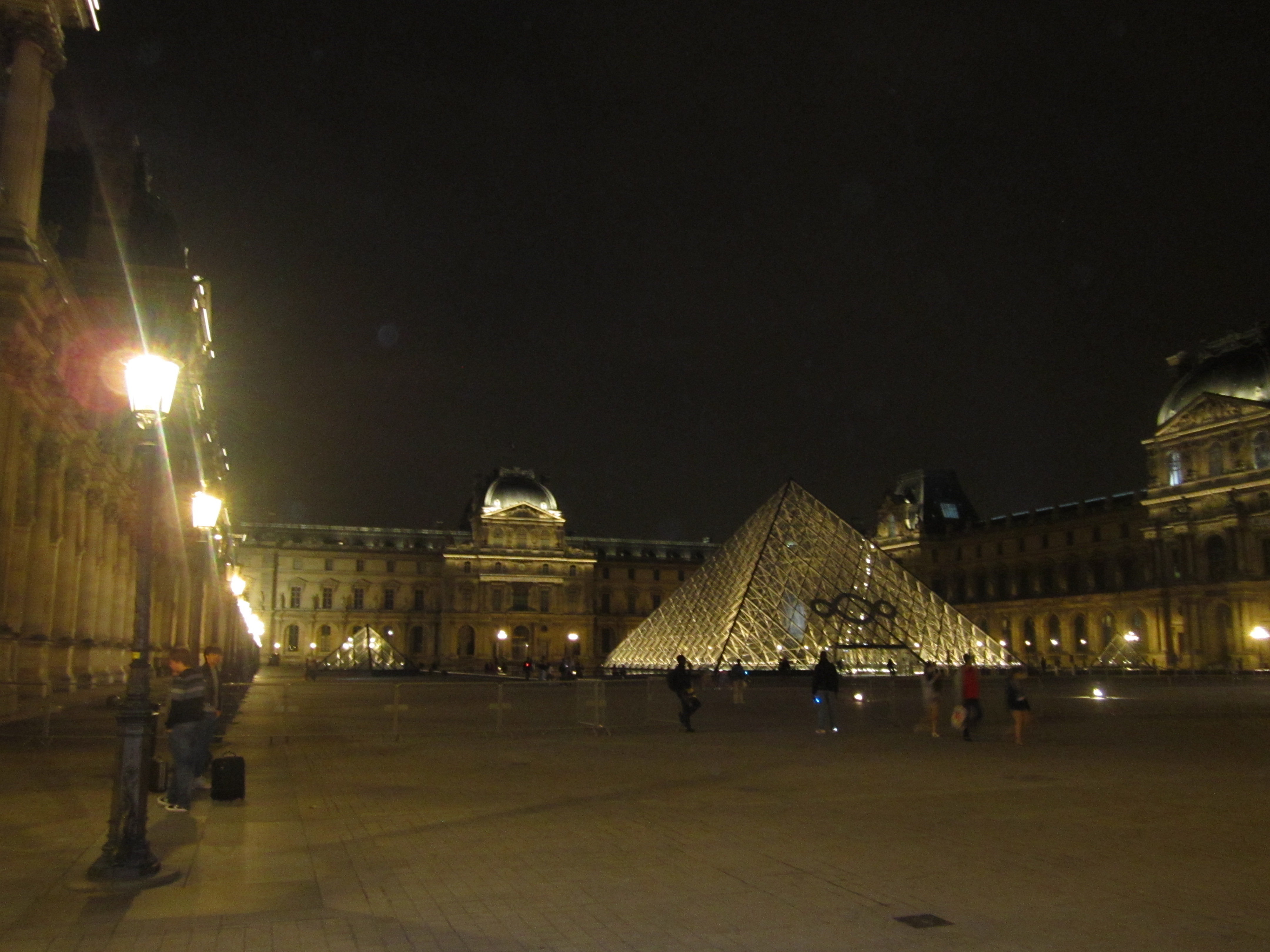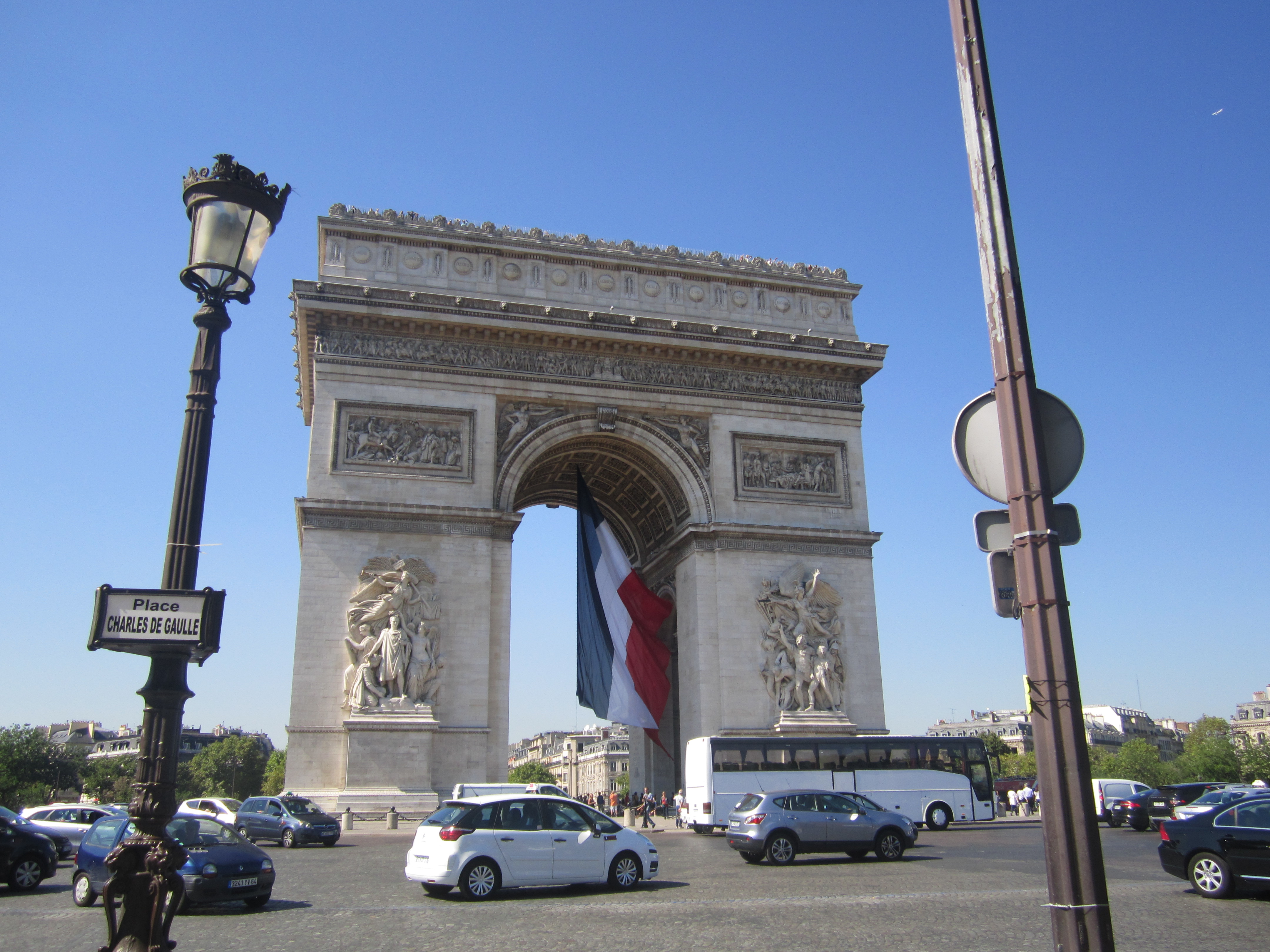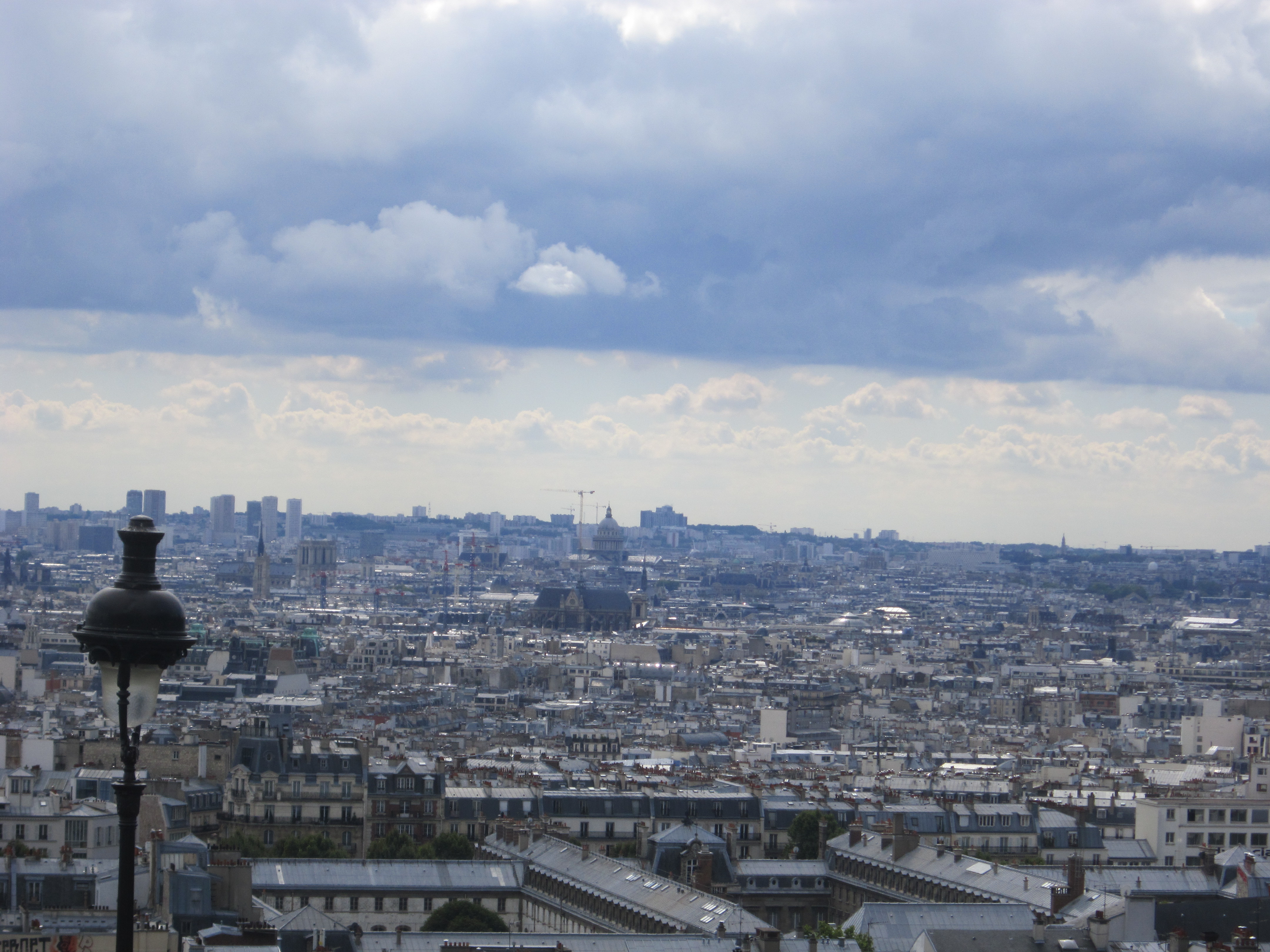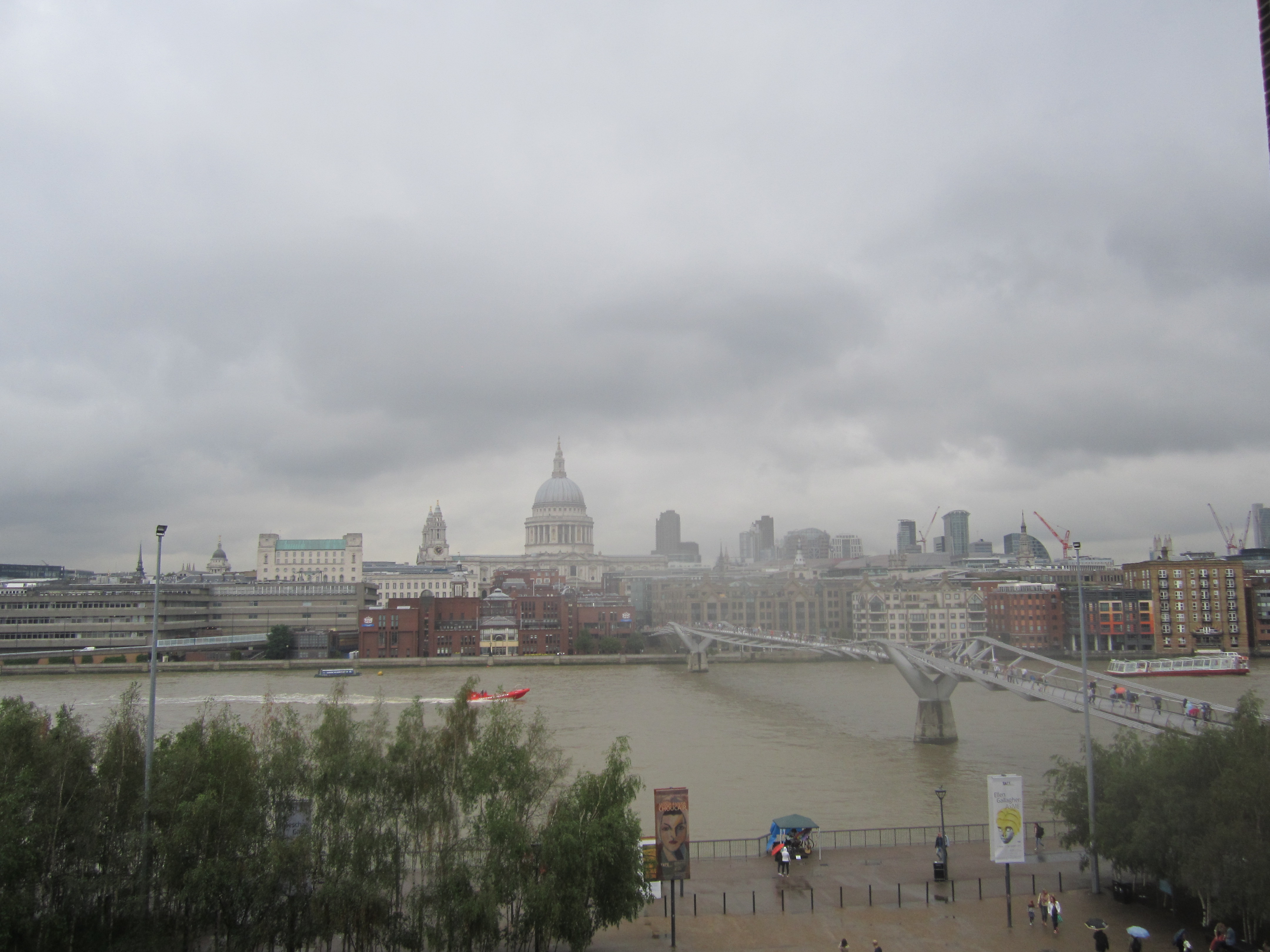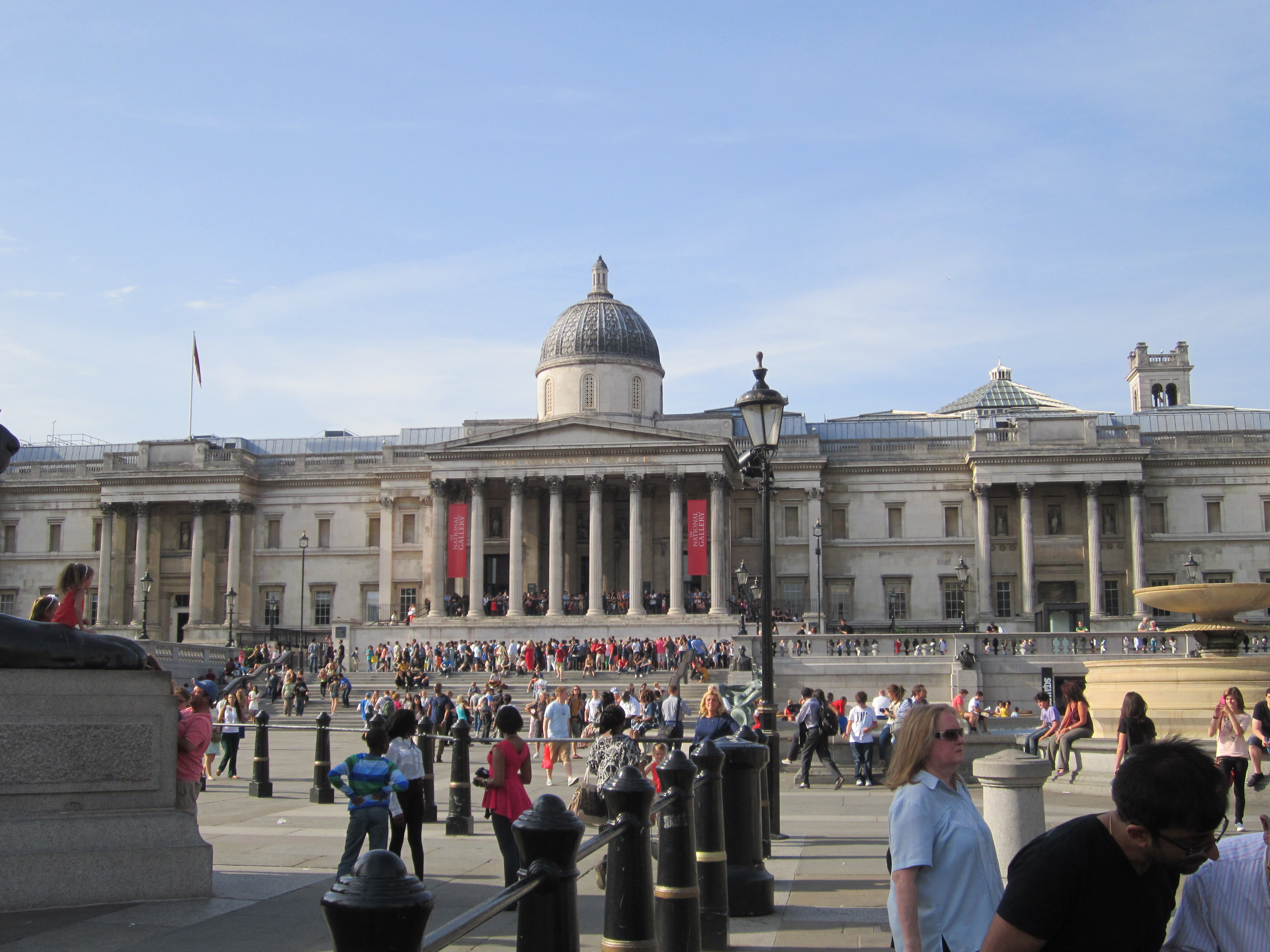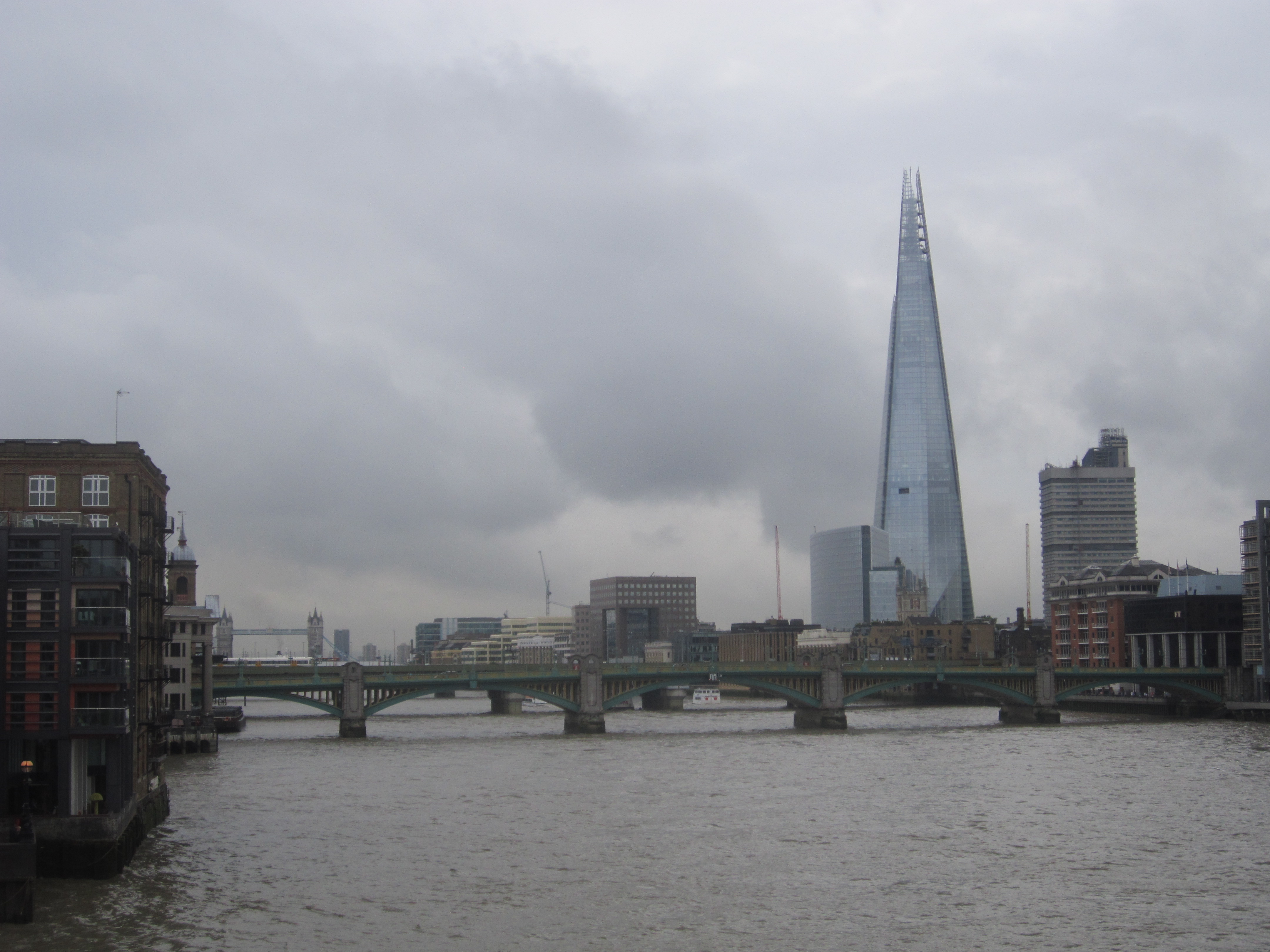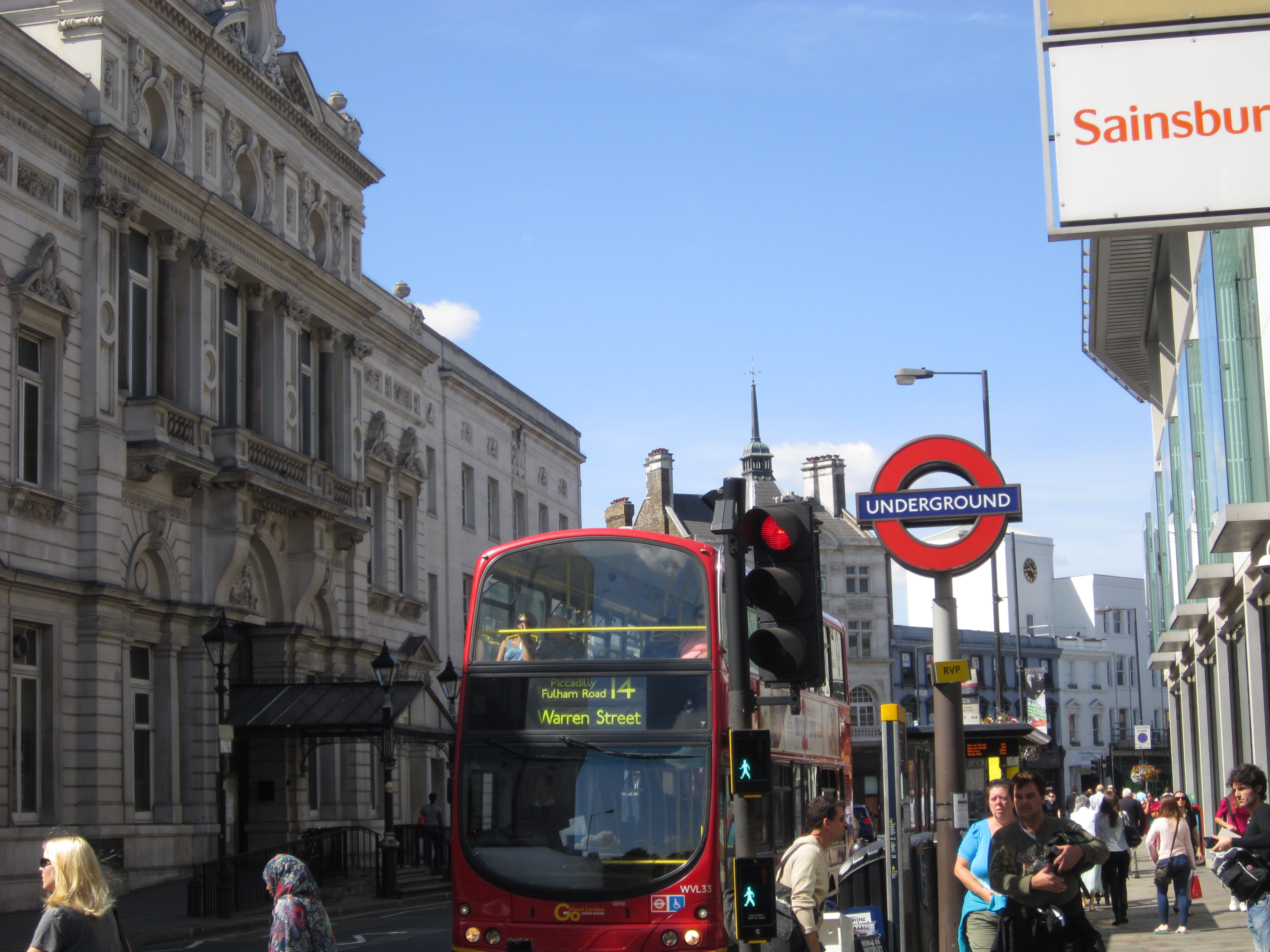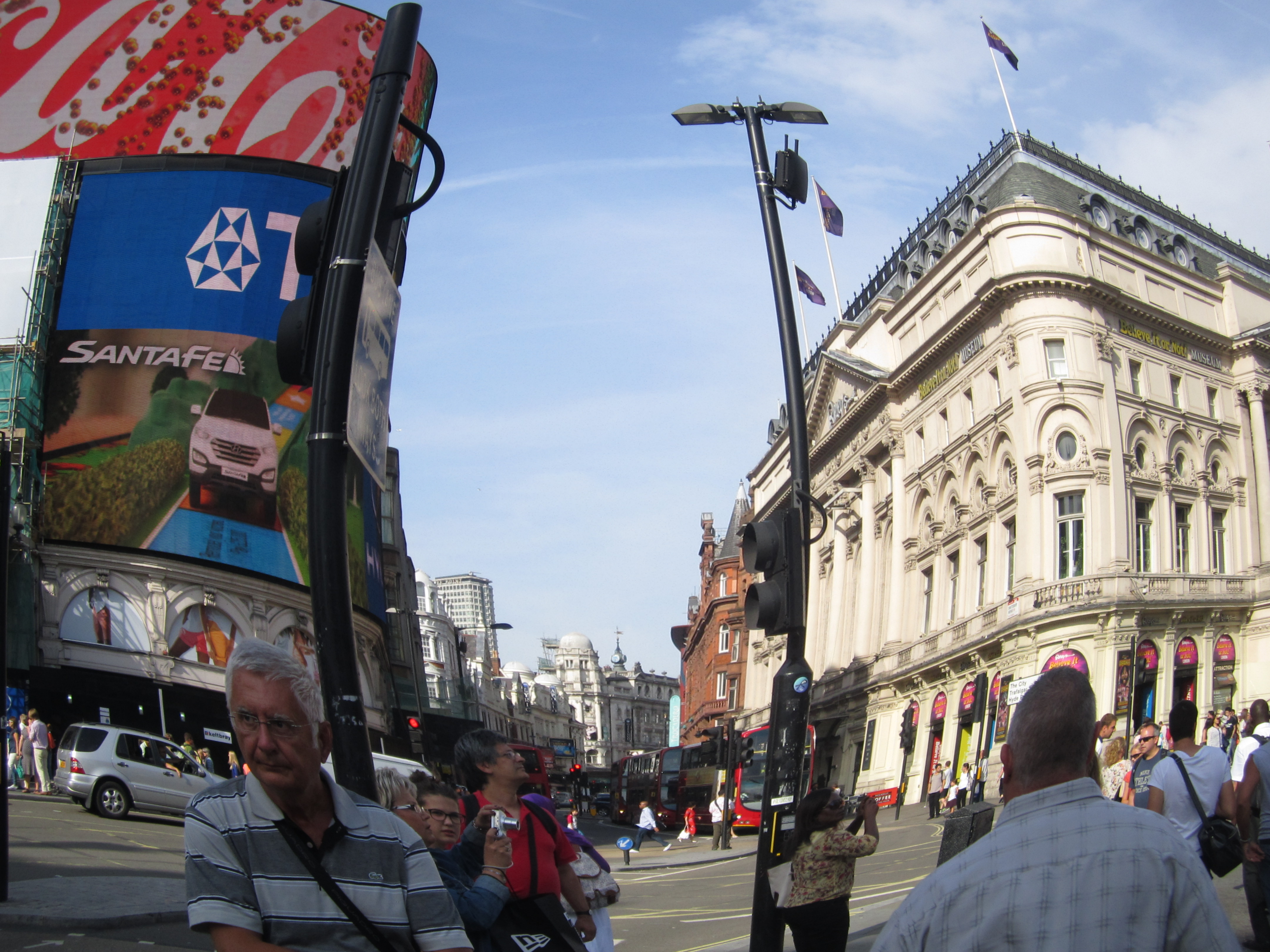I’ve been meaning to start this entry for a while now, but it’s been difficult because I don’t know where to start– there’s so much to say, with so many aspects and feelings which have come over me the past two weeks (really, two weeks? only two weeks?). The only place to really begin is on first impressions: describe Paris as a tourist (which I definitely still am) would, before going in depth in aspects of living here.
We arrived to Paris on the Eurorail in the late afternoon 18 days ago. After an intense fight through three metro lines with an enormous suitcase, we got out in the 2nd Arrondisement to the intricate marble apartments and hanging gardens Paris is famous for. It didn’t exactly seem real; I’d looked at so many pictures of the city by that point that seeing it ‘be’ exactly like it was supposed to felt more like a succession of pictures taped together than something real. But that might not have been a good thing, at least not at first. It all felt so unreal to me that I immediately started doubting my big decision: ‘why am I here’, ‘what am I doing’, ‘I don’t know anything about this place’, ‘it’s so expensive’, and so on, building up, making me miserable.
But after dinner I took a walk back to our rented apartment by myself. Evening had just fallen, lights were flickering on, and everyone was filling out into the streets, laughing and yelling. Paris really comes into its own at night– there’s an aura in the yellows and reds, and everyone seems to know it, as the noise in the evening, from people or from cars, grows louder than at any other point in the day. And there’s few places in the city that you can’t at least see the searchlight of the Eiffel Tower. In that ten minute walk home, I maybe didn’t understand this, but I definitely felt it, suddenly becoming giddy: this place was at least a little bit magical, and it was my playground for the next four months.
I didn’t realize how much that day would come to be a pattern for these first couple weeks in Paris. Sometimes I’m so excited to be here that every inch of every storefront, every expression used by a local, is amazing, and I want to soak it all in. Other times I feel incredibly lonely, boxed in, and just want to be back with my friends and family. Obviously the latter is a fairly classic case of homesickness and culture shock, but I’m surprised it affects me so easily– it will hit me for no apparent reason. It’s a rollercoaster ride. And I’ve learned more in the past fifteen days than I have in probably my entire life.
Paris is far and away the most gorgeous city I’ve ever been to. In most cities, the beauty of the city is defined by a couple key landmarks– the CN tower in Toronto or Westminster in London. In Paris there’s beauty in everything. Those golden horses on that one bridge. Those lover’s locks on the other. That cathedral. That other Cathedral. Every building, whether it has hanging gardens or it has ridiculous designer shoes being sold on its ground floor. Take the Hotel des Invalides. I walk by it every day when I’m going to school. It looks like Capitol Hill in Washington, only it has a golden roof, and at night all of it is lit up. In any other city (like Washington), a building like les Invalides would be considered a must-see, a defining feature of the city. Now tell me: which of you has heard of les Invalides? In Paris it’s just one of many. There’s an order and a balance to this city; thanks to the Baron Haussmann, Paris is one of the few cities in the world with an actual plan, and going down the wide boulevards, it’s easy to feel the mad work of a single artistic mind. A bit tyrannical, sure, but in Paris it works.
History is alive in Paris– Haussmann did design most of the city almost a hundred and fifty years ago. What makes it so different from historical ‘monuments’ of England is that many places seem to have been built recently, not a century ago, since all the buildings are constantly renovated to be made to look as they did. The pride here is overwhelming, particularly for ‘la Belle Epoque’ (the beautiful age), a time when Paris was the center of culture, style, and influence. Today that belief still runs so strong I’m inclined to believe it as well. All their boulevards are named after the people who made the city, while the golden obelisk of the Place de la Concorde still shines like it did when Napoleon brought it back from Egypt– the site where Marie Antoinette, Louis XIV, Robespierre and thousands of others were beheaded. In Paris this juxtaposition is entirely relevant: where London moves on, Paris glorifies. Every age of the city’s history is on display, from the Hemmingway 20’s of St Germain to the glittering decadence of the Louvre. But in the end, Paris is always in an age of la Belle Epoque.
Of course, this city goes deeper than basic esthetic attractions. Paris is the city where art lives. Take the shop windows: some I can’t believe are shops– model homes or ice palaces perhaps– whereas the clothing stores look more like the front cover of a Vogue. All of them. Even the people themselves, who are so expressive, so proud. I thought London was a fascinating place to people watch, but Paris takes it to another level– watching them I find it’s so easy to make up stories, especially when I can rarely pick out what they’re actually saying (leaving it up to me to make it up, of course). I’ve seen ancient old Gypsies with oak branch canes, wearing clothes that could be centuries old, so hunched over you can barely see their faces. I saw a waiter decide to take up juggling in the streets with empty wine bottles while he was on his break. I saw a man in a straw hat and tweed carrying a parasol under his arm (a ‘Dandy’ for the 21st Century, as my friend said). I’ve seen street vendors playing parlour pianos, or taking ancient photographs, or catching pigeons for money. Surreal doesn’t come close, some days at least.
This Monday Shakespeare and Company (the iconic bookstore which Hemmingway frequented, and which published Ulysses for the first time) held a Gatsby night, in which the book was read and jazz was played. I met up with a couple great Sciences Po kids, but also met some backpackers staying in a hostel, one working for the Peace Corps, another a photojournalist from Brooklyn. As we’re sitting on the steps of the Notre Dame, sharing eight bottles of wine, the photojournalist remarked “what a perfect day! Couldn’t get any more ‘Parisian'”, and I said “well actually, from what I’ve seen, it’s normal. Every day can be like this in Paris.” And everyone around me, my fellow exchange kids, all agreed.
Maybe it’s the size of the city which allows for more opportunities, more chances for an amazing night. Or maybe it’s just Paris. Either way, every day there’s a possibility for experiencing something new. One night my friends and I decided for a quiet night on the Seine with a couple bottles, but made friends with a group of Parisians and danced the night away by the river. Another night I didn’t get into a club because they heard me speaking English– well be damned if I didn’t go the next day to prove them wrong. Got in right away, and it was the best damn club I’ve ever been to. Parties in artist’s lofts, picnics by the Eiffel Tower, or protests on the streets, not to mention the countless museums. Every day’s a new adventure.
So this has been my totally shallow first post about Paris. Future (probably smaller) posts will focus on aspects of life here, like the language, culture shock, or my school. This post, however, might end up being the most important, since Paris is a master at overwhelming visitors; it’s a shock I still haven’t recovered from.


